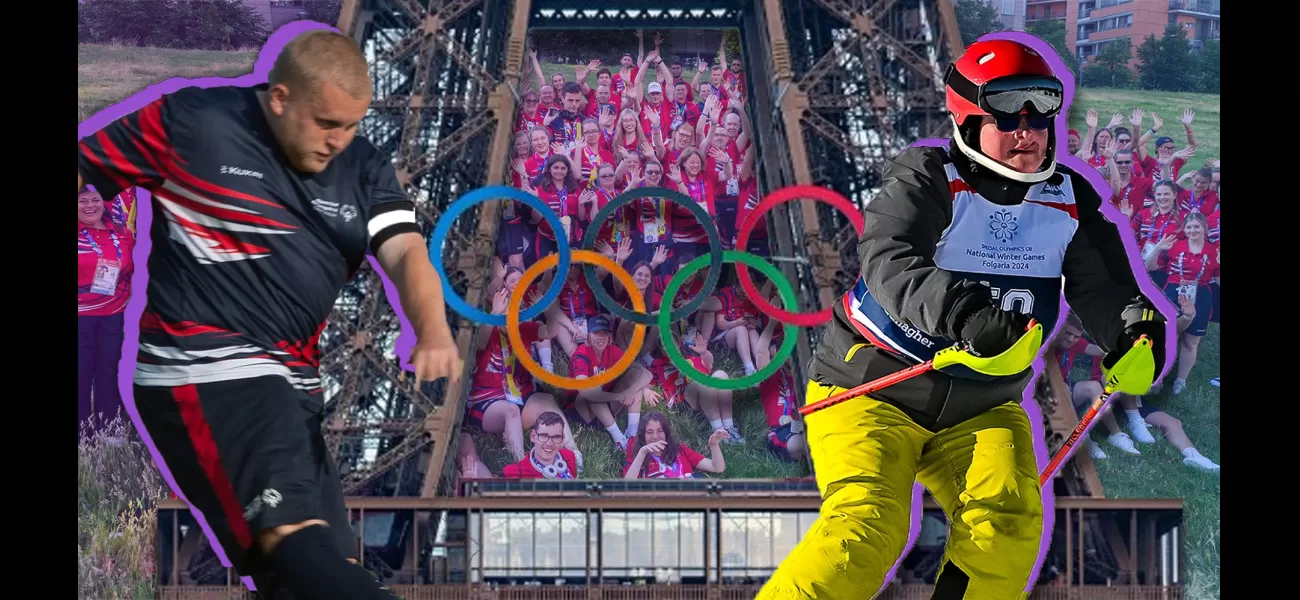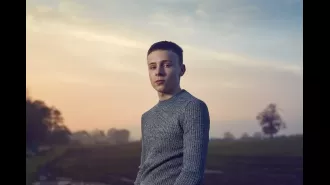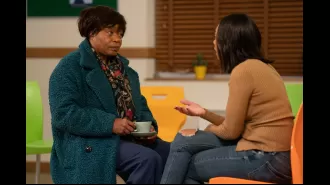There's another Olympics you likely don't know about.
"We are the underdogs in the world of sports."
July 20th 2024.

The Special Olympics, though often overshadowed by its more well-known counterparts, is a vital member of the global Olympic family. As excitement builds for the upcoming 2024 Summer Olympics in Paris, the city is also gearing up to host the Paralympics shortly after. In preparation, security measures are being heightened and venues are getting ready to welcome thousands of athletes and spectators. Rehearsals for the opening boat parade, a first in Olympic history, are already underway along the Seine, adding to the anticipation of what is sure to be an unforgettable summer of sports.
But while the world eagerly awaits the start of these events, another lesser-known Olympic event is also in the works. The Special Olympics is currently preparing for their Winter Games in Italy in 2025, followed by a Summer Games in Chile two years later. Founded on this day in 1968 by Eunice Kennedy Shriver, sister of former US President John F Kennedy, the Special Olympics was created to provide sporting opportunities and training for individuals with intellectual disabilities. These disabilities can affect cognitive and adaptive function, such as learning, problem solving, and communication skills. Participants may have conditions like Down Syndrome, Fetal Alcohol Syndrome, or Fragile X Syndrome. However, the focus of these games is on celebrating what these individuals can do, rather than what they may struggle with.
The Special Olympics made its way to the United Kingdom a decade later, with the GB charity starting as a single swimming club for individuals with intellectual disabilities. Now, it has grown to include 95 programs across England, Scotland, and Wales. Over 6,500 athletes currently train with Special Olympics GB in 27 different sports, ranging from football and skiing to basketball and swimming. Similar to the Olympics, the Special Olympics holds both summer and winter World Games every four years. While the world will be tuning in to watch the remarkable achievements of Olympic and Paralympic athletes in Paris, Metro is shining a light on this lesser-known yet incredibly important event.
The past, present, and future of Special Olympics GB are deeply rooted in the values of the Olympics, particularly the ideals of sportsmanship. Eunice Kennedy Shriver believed that these values could bring hope and confidence to individuals with intellectual disabilities, and today, those values continue to guide Team GB. Laura Baxter, the current CEO of Special Olympics GB, first became involved with the charity when she was asked to host a football session for individuals with intellectual disabilities nearly 20 years ago. She had never worked with individuals with disabilities before and initially felt apprehensive. However, after seeing the impact that these sessions had on the participants, she was hooked. As she explains, the sessions were not just about teaching new skills, but also about building confidence, creating connections, and providing a safe space for individuals who often face daily challenges.
Laura, who has a background in sports development, started out as a volunteer coach before joining the national office in 2019. She also served as a delegate for the Special Olympics athletes who competed in the 2019 World Games in Abu Dhabi and is now campaigning for Great Britain to host a World Games in 2031. However, before then, the charity has big goals to increase its reach and raise its profile, as the Special Olympics community has traditionally been very close-knit. As Laura explains, the organization is not widely known in the UK, despite being a part of the Olympic family. They hope to change that by amplifying their message and creating a platform for individuals with intellectual disabilities to share their stories and messages.
One of those individuals is Katie Day, who has been participating in the Special Olympics since she was a young girl. Now 39 years old, she has no plans of stopping anytime soon. She has competed in a variety of sports, from swimming to skiing, and even had the opportunity to meet Eunice Kennedy Shriver after winning a silver medal in Japan in 2005. Katie, who runs her own gardening business, recently became the chair of the athlete leadership team, where she serves as a spokesperson for athletes and helps to communicate their views and perspectives to the charity's board. She first got involved with the Special Olympics at the recommendation of a friend in her first year of senior school and has been a dedicated participant ever since.
Katie's local club in Birmingham was fairly new when she joined in 1997, and she remembers walking in for a taster session and falling in love with the program. She jokingly recalls losing one of her trainers during her first athletics event in Portsmouth, but assures us that she has since learned to tie her laces before a race. For Katie, the Special Olympics is a way of life, and she is grateful for the opportunities it has given her. As she puts it, it's "eat, sleep, Special Olympics, repeat" for her and many others who have found a sense of belonging and purpose through this incredible organization.
The Special Olympics, while not as well-known as its sister events, the Olympics and Paralympics, holds just as much excitement and anticipation. With the 2024 summer Olympics coming up in Paris, the city is alive with preparations and security measures. But what many people don't know is that the Paralympics will be followed by the Special Olympics, making history with its first-ever opening ceremony outside of a stadium.
As the world eagerly awaits the upcoming summer of sports, the Special Olympics is also gearing up for their Winter Games in Italy in 2025, followed by a Summer Games in Chile two years later. This event, founded by Eunice Kennedy Shriver on this day in 1968, was created to provide opportunities for people with intellectual disabilities to compete and train in various sports. These disabilities can affect cognitive and adaptive function, such as learning, problem solving, and communication skills. Athletes with Down syndrome, Fetal Alcohol Syndrome, or Fragile X syndrome are just some of the individuals who participate in these games, showcasing their abilities rather than their disabilities.
Special Olympics GB, the Great Britain charity, has grown immensely since its inception, now consisting of 95 programs across England, Scotland, and Wales. Over 6,500 athletes with intellectual disabilities train in 27 different sports, including football, skiing, basketball, and swimming. Similar to the Olympics, the Special Olympics also holds World Games every four years for both summer and winter sports.
While the world will be watching the incredible feats of Olympic and Paralympic athletes in Paris, it's important to shine a light on the Special Olympics, which may not have the same level of recognition but holds just as much importance. Eunice Kennedy Shriver, sister of former US president John F Kennedy, believed in the power of sportsmanship to instill confidence and hope in individuals with intellectual disabilities. This belief continues to be at the core of Team GB's plans, as seen through the dedication and passion of current chief executive Laura Baxter.
Laura, who has a background in sports development, got her start in the Special Olympics as a volunteer coach nearly 20 years ago. Her initial fear of working with individuals who were not part of the mainstream was quickly replaced with a passion for making a difference. She saw the impact of teaching new skills, building confidence, and providing a safe space for those who face daily challenges. Laura now aims to increase the reach and awareness of the Special Olympics GB, with the ultimate goal of hosting a World Games in 2031.
For many, the Special Olympics is a close-knit community, but Laura hopes to change that by amplifying their message and purpose to a wider audience. She believes that everyone has a story to tell, and individuals with intellectual disabilities also have a message to share. This platform is valuable in creating connections and understanding.
Katie Day, a participant in the Special Olympics since she was a young girl, has no plans of stopping anytime soon. Despite her dyslexia, dyspraxia, and dyscalculia, she has excelled in a variety of sports, including swimming and skiing. Her dedication and hard work paid off when she won a silver medal in Japan in 2005 and had the opportunity to meet Eunice Kennedy Shriver. Now, she is the chair of the athlete leadership team, acting as a spokesperson for athletes and making their voices heard.
Katie's love for the Special Olympics began in 1997 when she was recommended to participate in her first event. She hasn't looked back since and describes her experience as "eat, sleep, Special Olympics, repeat". With her own gardening business and now a leader in the athlete community, Katie's story is a testament to the power and impact of the Special Olympics.
But while the world eagerly awaits the start of these events, another lesser-known Olympic event is also in the works. The Special Olympics is currently preparing for their Winter Games in Italy in 2025, followed by a Summer Games in Chile two years later. Founded on this day in 1968 by Eunice Kennedy Shriver, sister of former US President John F Kennedy, the Special Olympics was created to provide sporting opportunities and training for individuals with intellectual disabilities. These disabilities can affect cognitive and adaptive function, such as learning, problem solving, and communication skills. Participants may have conditions like Down Syndrome, Fetal Alcohol Syndrome, or Fragile X Syndrome. However, the focus of these games is on celebrating what these individuals can do, rather than what they may struggle with.
The Special Olympics made its way to the United Kingdom a decade later, with the GB charity starting as a single swimming club for individuals with intellectual disabilities. Now, it has grown to include 95 programs across England, Scotland, and Wales. Over 6,500 athletes currently train with Special Olympics GB in 27 different sports, ranging from football and skiing to basketball and swimming. Similar to the Olympics, the Special Olympics holds both summer and winter World Games every four years. While the world will be tuning in to watch the remarkable achievements of Olympic and Paralympic athletes in Paris, Metro is shining a light on this lesser-known yet incredibly important event.
The past, present, and future of Special Olympics GB are deeply rooted in the values of the Olympics, particularly the ideals of sportsmanship. Eunice Kennedy Shriver believed that these values could bring hope and confidence to individuals with intellectual disabilities, and today, those values continue to guide Team GB. Laura Baxter, the current CEO of Special Olympics GB, first became involved with the charity when she was asked to host a football session for individuals with intellectual disabilities nearly 20 years ago. She had never worked with individuals with disabilities before and initially felt apprehensive. However, after seeing the impact that these sessions had on the participants, she was hooked. As she explains, the sessions were not just about teaching new skills, but also about building confidence, creating connections, and providing a safe space for individuals who often face daily challenges.
Laura, who has a background in sports development, started out as a volunteer coach before joining the national office in 2019. She also served as a delegate for the Special Olympics athletes who competed in the 2019 World Games in Abu Dhabi and is now campaigning for Great Britain to host a World Games in 2031. However, before then, the charity has big goals to increase its reach and raise its profile, as the Special Olympics community has traditionally been very close-knit. As Laura explains, the organization is not widely known in the UK, despite being a part of the Olympic family. They hope to change that by amplifying their message and creating a platform for individuals with intellectual disabilities to share their stories and messages.
One of those individuals is Katie Day, who has been participating in the Special Olympics since she was a young girl. Now 39 years old, she has no plans of stopping anytime soon. She has competed in a variety of sports, from swimming to skiing, and even had the opportunity to meet Eunice Kennedy Shriver after winning a silver medal in Japan in 2005. Katie, who runs her own gardening business, recently became the chair of the athlete leadership team, where she serves as a spokesperson for athletes and helps to communicate their views and perspectives to the charity's board. She first got involved with the Special Olympics at the recommendation of a friend in her first year of senior school and has been a dedicated participant ever since.
Katie's local club in Birmingham was fairly new when she joined in 1997, and she remembers walking in for a taster session and falling in love with the program. She jokingly recalls losing one of her trainers during her first athletics event in Portsmouth, but assures us that she has since learned to tie her laces before a race. For Katie, the Special Olympics is a way of life, and she is grateful for the opportunities it has given her. As she puts it, it's "eat, sleep, Special Olympics, repeat" for her and many others who have found a sense of belonging and purpose through this incredible organization.
The Special Olympics, while not as well-known as its sister events, the Olympics and Paralympics, holds just as much excitement and anticipation. With the 2024 summer Olympics coming up in Paris, the city is alive with preparations and security measures. But what many people don't know is that the Paralympics will be followed by the Special Olympics, making history with its first-ever opening ceremony outside of a stadium.
As the world eagerly awaits the upcoming summer of sports, the Special Olympics is also gearing up for their Winter Games in Italy in 2025, followed by a Summer Games in Chile two years later. This event, founded by Eunice Kennedy Shriver on this day in 1968, was created to provide opportunities for people with intellectual disabilities to compete and train in various sports. These disabilities can affect cognitive and adaptive function, such as learning, problem solving, and communication skills. Athletes with Down syndrome, Fetal Alcohol Syndrome, or Fragile X syndrome are just some of the individuals who participate in these games, showcasing their abilities rather than their disabilities.
Special Olympics GB, the Great Britain charity, has grown immensely since its inception, now consisting of 95 programs across England, Scotland, and Wales. Over 6,500 athletes with intellectual disabilities train in 27 different sports, including football, skiing, basketball, and swimming. Similar to the Olympics, the Special Olympics also holds World Games every four years for both summer and winter sports.
While the world will be watching the incredible feats of Olympic and Paralympic athletes in Paris, it's important to shine a light on the Special Olympics, which may not have the same level of recognition but holds just as much importance. Eunice Kennedy Shriver, sister of former US president John F Kennedy, believed in the power of sportsmanship to instill confidence and hope in individuals with intellectual disabilities. This belief continues to be at the core of Team GB's plans, as seen through the dedication and passion of current chief executive Laura Baxter.
Laura, who has a background in sports development, got her start in the Special Olympics as a volunteer coach nearly 20 years ago. Her initial fear of working with individuals who were not part of the mainstream was quickly replaced with a passion for making a difference. She saw the impact of teaching new skills, building confidence, and providing a safe space for those who face daily challenges. Laura now aims to increase the reach and awareness of the Special Olympics GB, with the ultimate goal of hosting a World Games in 2031.
For many, the Special Olympics is a close-knit community, but Laura hopes to change that by amplifying their message and purpose to a wider audience. She believes that everyone has a story to tell, and individuals with intellectual disabilities also have a message to share. This platform is valuable in creating connections and understanding.
Katie Day, a participant in the Special Olympics since she was a young girl, has no plans of stopping anytime soon. Despite her dyslexia, dyspraxia, and dyscalculia, she has excelled in a variety of sports, including swimming and skiing. Her dedication and hard work paid off when she won a silver medal in Japan in 2005 and had the opportunity to meet Eunice Kennedy Shriver. Now, she is the chair of the athlete leadership team, acting as a spokesperson for athletes and making their voices heard.
Katie's love for the Special Olympics began in 1997 when she was recommended to participate in her first event. She hasn't looked back since and describes her experience as "eat, sleep, Special Olympics, repeat". With her own gardening business and now a leader in the athlete community, Katie's story is a testament to the power and impact of the Special Olympics.
[This article has been trending online recently and has been generated with AI. Your feed is customized.]
[Generative AI is experimental.]
0
0
Submit Comment





